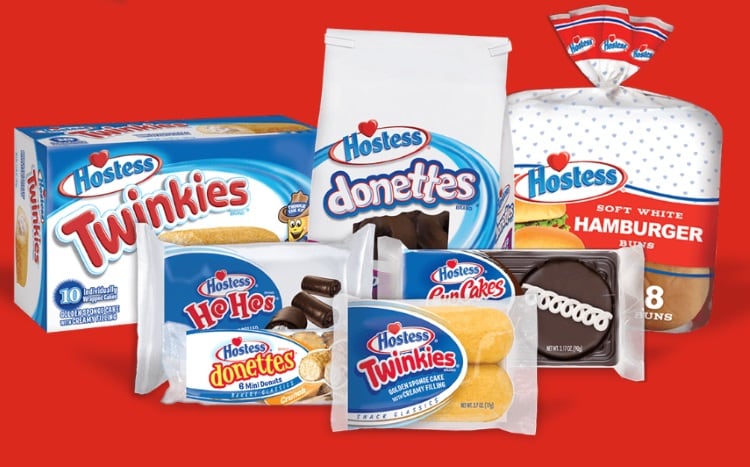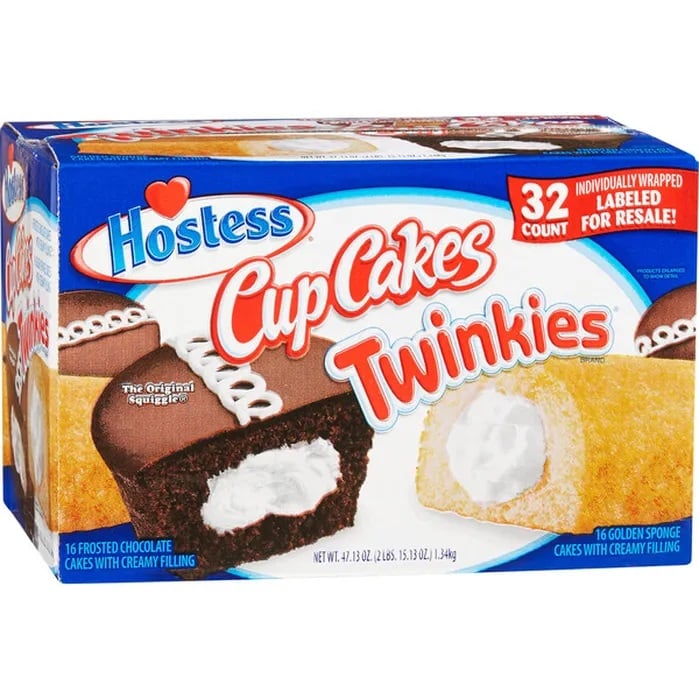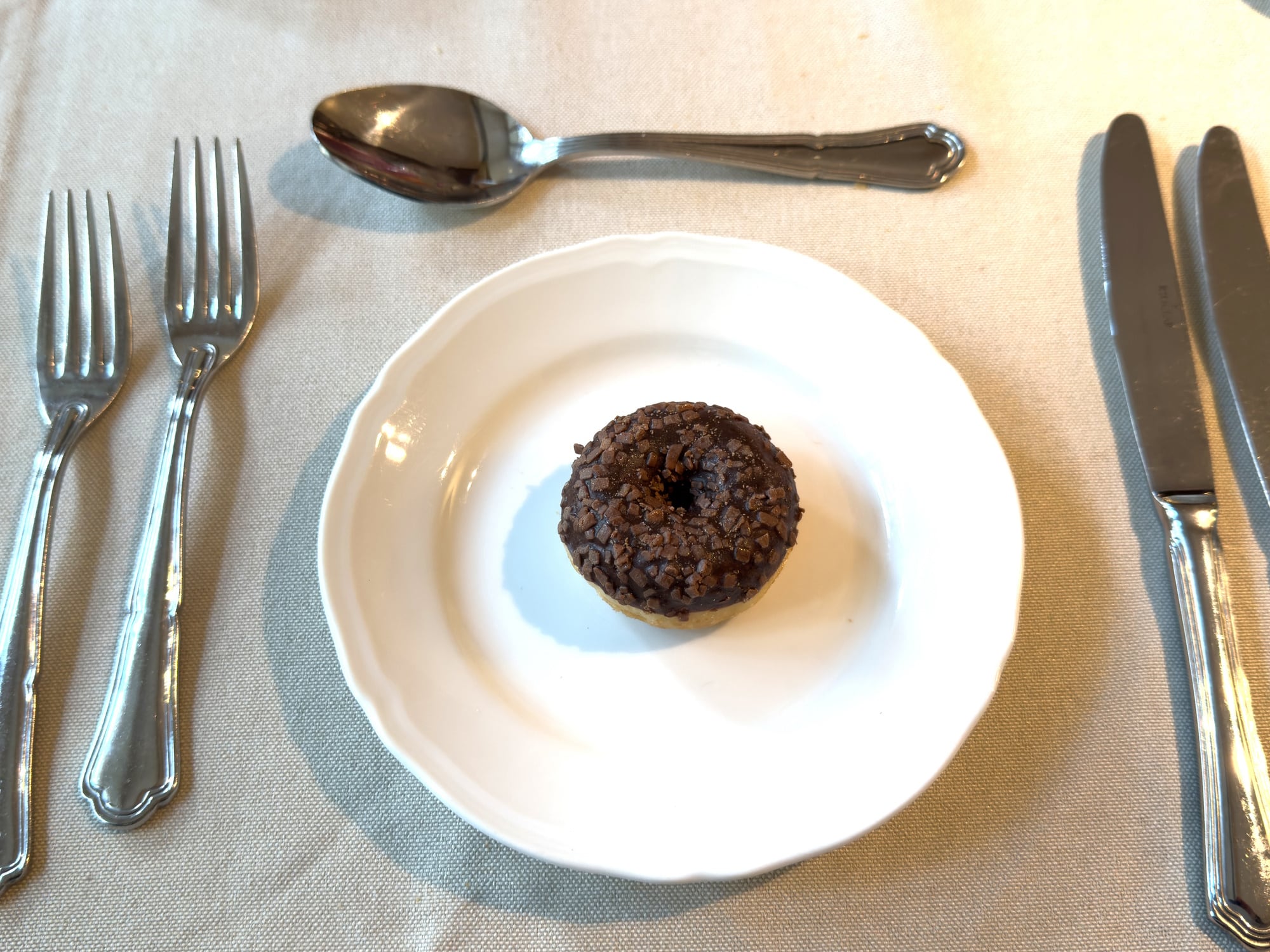Key takeaways:
- Smucker is cutting 25% of Hostess SKUs – including CupCakes – to focus on higher-velocity winners like Donettes and Twinkies.
- The $5.6 bn Hostess acquisition has turned into Smucker’s toughest turnaround, with sales down 24% and margins nearly halved in Q1 FY26.
- Uncrustables is now a $1 bn brand, showing Smucker can modernize nostalgia – the question is whether Hostess can follow.
When CEO Mark Smucker – a fifth-generation member of the founding family – walked into the Barclays 18th Annual Global Consumer Staples Conference earlier this month, his company’s numbers told two very different stories. On one side was Uncrustables, hurtling past $1bn in sales and proving Smucker could still mint growth from innovation. On the other was Hostess, bleeding margins barely a year after its $5.6bn takeover.
Smucker chose to plant a flag. He raised full-year sales guidance to 3-5%, reaffirmed adjusted EPS at $8.50–$9.50 and set a bold target of generating more than $1bn in annual free cash flow. Then he doubled down on Hostess, promising SKU cuts, sharper execution and marketing muscle to turn America’s guiltiest pleasure into a disciplined profit engine.
It was a calculated message to Wall Street: Smucker isn’t flinching. Twinkies, CupCakes and Ding Dongs may be under pressure, but the company is betting that trimming fat and focusing on Donettes can turn a wobbly acquisition into a long-term win.
For generations, The J.M. Smucker Co. has been the face of pantry staples: Jif peanut butter, Folgers coffee and Milk-Bone dog treats. Founded in 1897 and still headquartered in Orrville, Ohio, the company built its reputation on dependable categories. But by 2023 it wanted more. Hostess was supposed to be the crown jewel of a new snacking empire – and right now, it looks more like a test of Smucker’s nerve.
Fiscal 2025 results suggested the sugar rush was real. Net sales climbed 7% to $8.7bn, fueled by the Hostess deal and higher coffee pricing. Sweet Baked Snacks surged 17% in the immediate post-acquisition quarter.
By Q1 fiscal 2026, though, the high had worn off. Sales dropped 24% year on year – or 10% on an organic basis – to $253.4m. Segment profit fell 54% to $34.2m, with margins compressed to 13.5% from 22.3%. The boldest deal in company history had quickly become its most demanding turnaround.
“We don’t see any meaningful impact from GLP-1s”

Much of the market chatter has centered on GLP-1 weight-loss drugs like Ozempic and Wegovy, which are reshaping food habits. Prescriptions have more than tripled since 2020, and nearly 12% of Americans have tried them. OC&C Strategy Consultants estimates these drugs are already cutting US food volumes by 1-2%, with snack cakes and cookies among the categories most at risk.
Mark Smucker, however, isn’t convinced. “Up to this point, we still don’t see any meaningful impact in our categories,” the CEO told analysts on the company’s Q1 fiscal 2026 earnings call in August. He argued that Hostess remains resilient, citing rising convenience-store traffic and data showing that 70% of consumers continue to snack twice daily. The pressure, he said, is more economic than pharmacological – snack cakes are discretionary, and with household budgets squeezed, consumers are making harder choices.
Even so, the company is hedging its bets. Hostess is rolling out lower-sugar recipes, $1 single-serve packs and portion-controlled formats to keep pace with shifting appetites. Smucker’s thesis is clear: GLP-1s may shrink how much Americans eat, but indulgence will still have its place – especially if it’s smaller, cheaper and easier to justify.
Pruning the portfolio for profit

To steady Hostess, Smucker is streamlining. The company has launched a SKU rationalization program that will chop a quarter of the product range. Many of the SKUs being retired are long-tail items that added little margin or velocity. The focus is squarely on the flagships. Donettes alone is three times the size of CupCakes, the next biggest sub-brand. Twinkies remain a household name. In practical terms, Smucker is cutting CupCakes to save Twinkies – concentrating resources on what moves shelves and delivers profit.
The company is also taking out costs. Smucker will close Hostess’s Indianapolis bakery by 2026, consolidating production in more efficient facilities. CFO Tucker Marshall told investors on the Q1 FY26 call that SKU cuts and the closure together will generate $30m in annualized savings – $10m flowing through in the fourth quarter of fiscal 2026, the balance by 2027. He added that Sweet Baked Snacks profitability should improve sequentially each quarter, with Q4 the strongest.
Execution at retail is another priority. Hostess products live on visibility – racks in c-stores, end-caps in supermarkets, single-serve packs at the counter. To sharpen its focus, Smucker created a dedicated Sweet Baked Snacks sales organization. Management reported early progress, with Hostess regaining share at key customers and base velocities improving.
A billion-dollar sandwich vs a billion-dollar headache
If Hostess is the patient under surgery, Uncrustables is the athlete lapping the field. Once a quirky idea – frozen, sealed peanut butter and jelly sandwiches sold without crusts – Uncrustables has become one of Smucker’s most powerful brands. Net sales have surged past the $1bn mark, fueled by national advertising, distribution gains and flavor innovation.
Smucker has even opened a massive new plant in McCalla, Alabama, to keep up with demand. The brand is also breaking out of its lunchbox niche, with distribution now in over 30,000 convenience stores and growing traction among universities, athletes and young adults. Limited-time flavors like Berry Burst and PB Choco Craze show how Uncrustables is keeping its lineup fresh while defending its category leadership.
In many ways, Uncrustables is the blueprint for what Smucker wants Hostess to become: a nostalgic comfort food modernized for today’s consumers, scaled up with innovation and supply chain muscle. The contrast is stark: one brand is a runaway success story; the other a $5.6bn question mark.
Indulgence with a makeover

Trimming the lineup and shuttering plants may protect margins, but growth demands relevance. Smucker is applying its brand-building playbook to Hostess, including refreshed packaging, culturally tuned marketing and new flavors. Seasonal launches like Berry Burst Donettes add novelty, while smaller pack formats reinforce affordability and portion control.
The company plans to spend 5.7% of net sales on marketing in fiscal 2026, according to its latest guidance – a step-up designed to remind younger demographics that Hostess isn’t just their parents’ treat. Smucker is positioning the brand as indulgence with a makeover: familiar enough to comfort, modern enough to feel permissible.
Brand equity is still a powerful asset. Donettes is the #1 packaged donut in the US. CupCakes and Twinkies lead their categories. These equities give Smucker leverage, but only if it proves they can evolve. The risk is nostalgia without relevance and management appears determined not to let that happen.
The snack war Smucker signed up for

Hostess isn’t battling in a vacuum. Input costs like flour and sugar remain volatile, and a 10% global tariff on imports is another inflationary cloud. At the same time, private label is eating into share, now accounting for 21.7% of US food sales. Retailers’ own cupcakes and donuts can be 20-30% cheaper than Hostess.
Smucker’s counter is twofold: leaner operations and brand loyalty. A Twinkie carries emotional weight that a store-brand cupcake doesn’t, but only if execution is sharp and formats feel relevant. That’s why SKU cuts, bakery consolidation, smaller packs and fresh marketing matter as much as nostalgia. As management noted on its Q1 FY26 call, Hostess has already begun clawing back share at major accounts.
The wider bakery snacks category remains resilient. Analysts expect steady growth through 2027, even if the pace is slower than during the pandemic. Sweet baked goods are discretionary, but they’re ingrained in American culture. Smucker is betting that indulgence, disciplined and modernized, can still win in a leaner, more competitive market.
A bet on indulgence surviving discipline

Smucker’s FY26 guidance projects 2-4% net sales growth and adjusted EPS of $8.50 to $9.50. Coffee price hikes and double-digit Uncrustables growth are offsetting Hostess volatility and pet food softness. Free cash flow of $317m is earmarked for debt reduction and reinvestment. The $980m non-cash impairment charge taken in FY25 to mark down Hostess goodwill was a humbling reminder of the integration challenge, but management insists the long-term strategy is intact.
The turnaround will take time, but the levers are in motion: SKU cuts, plant closures, cost savings, dedicated sales teams and innovation. If they succeed, Smucker will have transformed Hostess from a drag into a driver. If they fail, the $5.6bn acquisition could go down as a case study in the limits of nostalgia in a health-conscious era.
For now, the company is cutting CupCakes to save Twinkies – betting that indulgence, slimmed down and sharpened, still belongs in America’s shopping carts.





